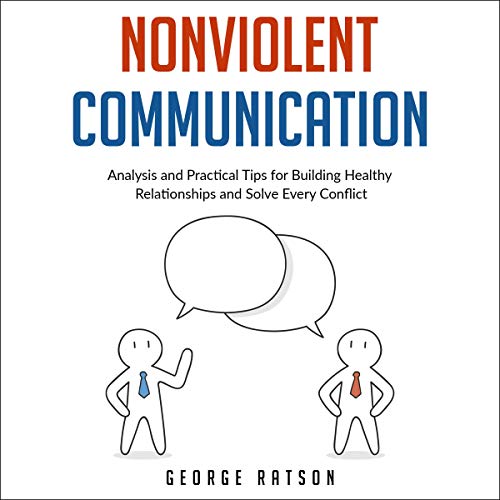
Nonviolent Communication
Analysis and Practical Tips for Building Healthy Relationships and Solve Every Conflict
Échec de l'ajout au panier.
Échec de l'ajout à la liste d'envies.
Échec de la suppression de la liste d’envies.
Échec du suivi du balado
Ne plus suivre le balado a échoué
0,99 $/mois pendant vos 3 premiers mois
 Exclusivité Prime: 2 titres
gratuits à choisir pendant l'essa. Des conditions s’appliquent.
Exclusivité Prime: 2 titres
gratuits à choisir pendant l'essa. Des conditions s’appliquent.
Acheter pour 18,74 $
Aucun mode de paiement valide enregistré.
Nous sommes désolés. Nous ne pouvons vendre ce titre avec ce mode de paiement
-
Narrateur(s):
-
Connor Curlewis
-
Auteur(s):
-
George Ratson
À propos de cet audio
Nonviolent communication, or NVC, is a strong communication tool, but it goes much further than that.
It's a way in the world to be, dream, and live. The aim is to encourage heartfelt connections between ourselves and others — connections that allow compassionate giving to meet the needs of all. This encourages us to give from the heart and others. It also allows us to communicate with our inner divinity and from moment to moment with what is alive in us.
We might say that NVC is a language of compassion, but it is truly a language of life in which compassion naturally comes. The model shows us how we can communicate what's alive in us and see what's alive in others. When we know what's going on in us, we can look at what we can do to improve our life.
Nonviolent Communication evolved from an intense interest in two issues that I had. First, I wanted to understand better what happens to humans which leads some of us to act violently and exploitably. And secondly, I wanted to understand better what kind of education fits our efforts to remain compassionate - which I think is our nature - even when others act violently or exploitably.
The idea that has been around for many years suggests violence and abuse happens because people are innately evil, egoistic, or aggressive. But I've seen people who aren't like that; I've seen a lot of people who like to contribute to the well-being of each other.
So, I wondered why some people seem to enjoy the pain of other people, while others are the opposite.
I found the following three reasons to be very important in understanding why some of us react aggressively and some of us respond compassionately in similar situations:
- The language we've been taught to use
- Why we got taught how to think and talk
- We have learnt specific strategies to affect others and ourselves.
In this book, you'll learn:
- How to communicate effectively and make people listen
- How to resolve tough conflicts
- How to listen to your communication partner
- How to process anger-ridden information
- How to express yourself calmly when angry and be listened to
This is a book you'd enjoy listening to!
©2020 George Ratson (P)2020 George Ratson


